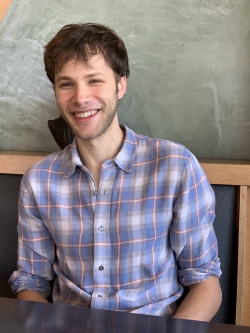Mathematical Foundations for Physical Agents
Hence, we turn to providing mathematical guarantees for a setting of real-world importance that does not fit the linear mold: behavior cloning. Behavior cloning — teaching a robot to imitate from example demonstrations — lies at the heart of many of today’s most promising robot learning endeavors due to its intuitive data collection and simplicity. Though it can work incredibly well, we still do not have a clear understanding of what circumstances ensure its success. Bringing together the flexibility of generative models with key intuitions arising from the study of linear control, we introduce a framework for behavior cloning that enables an agent to imitate nearly arbitrary behavior with provable guarantees, even when the dynamics governing the agent and environments interaction are nonlinear. We conclude by outlining ongoing work and future steps towards building out the mathematical and conceptual tooling for understanding the next steps towards general, capable and flexible physical agents.
Bio: Max Simchowitz is a postdoctoral researcher in the Robot Locomotion Group at MIT CSAIL. He studies the theoretical foundations of machine learning problems with a sequential or dynamical component; he currently focuses on robotics and out-of-distribution learning, and with past work ranging broadly across control, reinforcement learning, optimization and algorithmic fairness. He received his PhD from University of California, Berkeley in 2021 under Ben Recht and Michael I. Jordan, and his work has been recognized with an ICML 2018 Best Paper Award, ICML 2022 Outstanding Paper Award, and RSS 2023 Best Paper Finalist designation.
This talk is co-sponsored by the departments of Electrical and Computer Engineering and Computer Science.
To request accommodations for a disability please contact Lidia Stokman, lstokman@princeton.edu, at least one week prior to the event.

